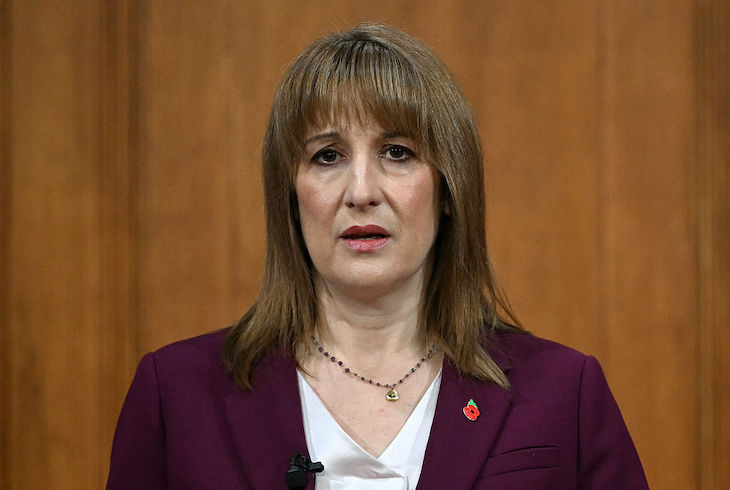For women trying to escape domestic abuse, the government’s early prison release scheme spells further misery. Around 1,700 prisoners will walk free today. A ‘high proportion’ of them will be domestic abusers, according to Nicole Jacobs, the domestic abuse commissioner, who said survivors of domestic violence were ‘paying the price’ for prison overcrowding. Make no mistake: Jacobs is right. Some women will lose their lives as a result of prisoners being released prematurely.
A man who was in jail for breaking his partner’s jaw is amongst those to be freed
Perpetrators of domestic violence often know where their victims live, where they work and where their kids go to school. The decision to release these criminals early will mean that, across Britain, hundreds of women will be looking over their shoulders, living in fear.
It’s true that Labour does need to do something to fix the crisis of our overcrowded prisons. But any scheme to release inmates early which involves so many violent men is not the answer. The Probation Service has not had long enough to prepare for today. This will probably mean that many released prisoners, who should be under proper supervision, will slip through the net. Already-stretched probation officers will be even more overwhelmed. Disaster seems inevitable.
A man who was in jail for breaking his partner’s jaw is amongst those to be freed. We know that these sorts of violent offences – especially where they are serious enough to land the man in prison – often lead to more serious assaults, including fatal ones.
Over the decades I have been campaigning for criminal sanctions against perpetrators of violence against women, I have lost count of the number of victims who have told me that, almost as soon as these men are sent to prison, they lie awake at night dreading their release. These women are often stalked and harassed by men who are in custody, when prison officers fail to act upon complaints about numerous phone calls and letters. As criminologists such as Jane Monckton Smith and others have pointed out, high-risk domestic violence offenders often do slip through the net. The justice system simply cannot keep track of these offenders.
Jail should only be used as a last resort. I would empty the prisons of both the vast majority of women and significant numbers of men. Unless criminals are a danger to others, they should not be in prison. Jail is no place at all for anyone with substance abuse problems, mental health issues, or other problems that could be dealt with by drug and alcohol rehabilitation and other forms of clinical treatment programmes. But domestic violence is not a result of ‘illness’ or addiction. These criminals deserve to be locked up – and to serve the entirety of their sentence.
Prime Minister Keir Starmer should know better: as Director of Public Prosecutions he pledged to make a difference to the disgraceful police and Crown Prosecution Service record in tackling crimes against women by men. Yet this new scheme is no way to reassure victims of rape and domestic violence.
We can’t afford to keep putting people in prison when it is not absolutely necessary to do so. Prisons are seriously overcrowded, and probation cannot cope with a massive increase in numbers. But there are people we must keep locked up until we are confident that it is safe to release them – and for a tiny number of offenders, that day may never come.
The failures of the Parole Board and the Probation Service over the past few years (since the Tories ran both into the ground) are stark, especially when it comes to dealing with violent men. In 2016, Leroy Campbell, a dangerous sexual predator, climbed through a window into Lisa Skidmore’s first-floor bedroom in Bilston, in the West Midlands, where he raped and murdered her. Lisa’s 80-year-old mother came to visit while Campbell was still in the house, whereupon he attacked her, set fire to the property, and left her for dead. This happened four months after he was released from prison, having served 17 years for an attack on another woman. Only six weeks before murdering Lisa, Campbell had told his probation officer that he felt like ‘doing it again’, and had taken to looking at open windows when he was walking around. Even when he admitted to feeling urges to carry out another attack, this dangerous man wasn’t recalled to prison.
Will another terrible story like this happen again? We are often told that ‘prison works’; in terms of keeping very dangerous offenders (almost always men) away from potential victims, it does. But our prisons have become dangerously overcrowded with people who could be more effectively deterred from repeat offending by non-custodial sentences. Between June 2021 and June 2022, 43,000 people were sentenced to a prison term, yet three in every five of these had not committed a violent offence. Most of them need to be let out. But repeat and serious domestic abuse perpetrators need to be locked up. Only then will their victims feel safe.








Comments